The Top 8 Marketing SEO Tools for a Stronger Inbound Content Strategy
Written by
If you’re an inbound marketer, there’s little doubt you’ve noticed how much harder it’s becoming to get found in search engine results.
Search engine optimization (SEO) can feel like a steep and endless climb for digital marketers — yet ranking highly on search engine results pages (especially Google’s, whose share of search queries is over 90%) is still a top priority for digital marketers.
Add to that challenge an overwhelming number of SEO tools, each claiming it can get you to the top of the SERP and position your content above all the competition.
A little real talk straight from the source before we dive into the best of these tools: Google itself states that its helpful content system rewards the stuff that best satisfies the needs of website visitors. If your content’s not targeted and helpful, before you do anything else, ask yourself why you’d want to optimize it for search.
Assuming you’ve done the hard work of discovering the needs of your target audience and developing content that’s valuable above all, you’ll want to take a closer look at these eight SEO and content strategy tools. I’ve used them all and have found each one to be among the most helpful and user-friendly — especially for aligning your editorial content strategy with the most optimal ranking opportunities among your prospects’ searches.
You can use these tools to monitor your SEO performance and boost the effectiveness of your inbound marketing program — driving more traffic and attracting more qualified leads to your website:
- Google Search Console
- Ubersuggest
- Semrush
- Answer the Public
- HubSpot’s SEO Tool
- Keyword Finder
- SEOquake
- SEO Minion
Give them a try! There’s always something new to discover and learn in the ever-changing universe of SEO, and with the right tools, you can learn more and do more for your marketing programs.
RELATED: Click here to discover 7 free analytical tools that can help optimize your website performance compared with competitors!
1. Google Search Console
Free
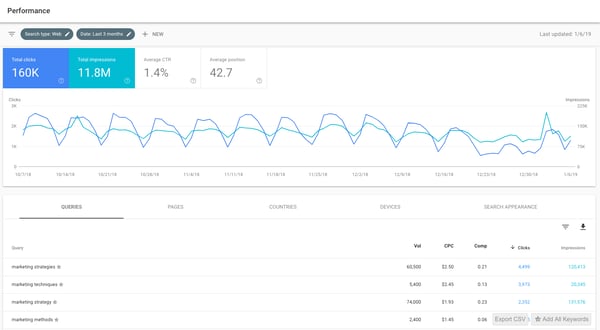
Every marketer knows Google’s the top dog in search, so it makes sense that a tool created by Google can help you optimize results on the channel. If you’re a verified owner of a Google Analytics property, the automatic verification of your website in Search Console will yield incredibly helpful information that’s vital for a strong performance in Google Search.
This free SEO tool will help you understand how your website is performing, including monitoring traffic and maintaining and optimizing existing search rankings. It can also identify whether visitors are on mobile devices or desktops, help you find pesky website errors, and tell you which pages on your site are bringing in the most traffic. All you need to do is verify your website by adding some additional code. The custom report add-on feature can deliver even more insights via Google Sheets.
2. Ubersuggest
Free
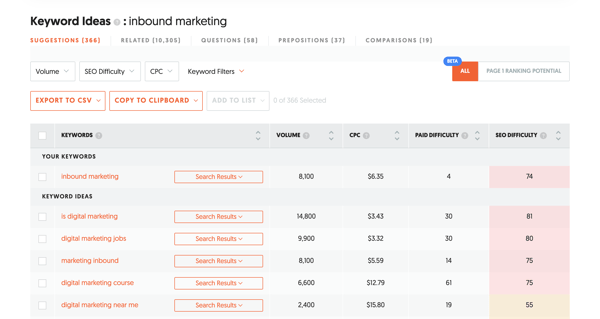
What is an inbound strategy without a keyword strategy? Your keyword strategy is a core component of any inbound marketing plan, because knowing which keywords your potential customers are most likely to type into the search bar is what drives your content strategy. Every industry has its obvious keywords — but zeroing in on the hidden gems in your buyers’ brains can help you tap right into their searches.
No pressure, right?
Ubersuggest is a keyword research tool that does exactly what its name implies: it suggests keywords and long-tail phrases based on your initial keyword entry. Along with keyword suggestions, it provides difficulty and volume ratings, and even seasonal trends. Its competitive intelligence feature is extremely valuable, providing data on who is actually ranking for specific keywords and pay-per-click campaigns. It even shows competitors’ ad copy. Compared to other keyword research tools, Ubersuggest offers a really nice, clean and simple user interface that makes it easy to quickly decipher the data.
3. Semrush
Paid account
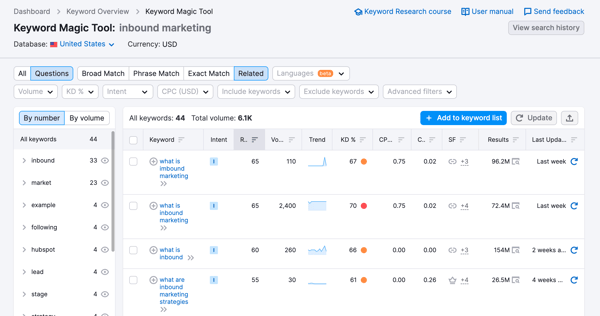
Semrush bills itself as an all-in-one digital marketing suite with tools for SEO, PPC advertising, keyword research, competitive analysis, social media, and more. Tapping into its more robust capabilities does require a paid subscription. You can pull reports about domains and keywords, and use that information to research your competitors’ online activities. This can inform your own strategies for improving your own campaigns.
If you’re looking for some SEO quick wins, use Semrush to export a list of the easiest opportunities to optimize existing URLs, such as identifying keywords that rank in the top 5 – 25. Use their Topic Research tool to analyze competitors’ content around any given topic and stir up fresh ideas for creating high-performance content: draft killer headlines, write up answers to key questions, explore related topics, and more.
4. Answer the Public
Free
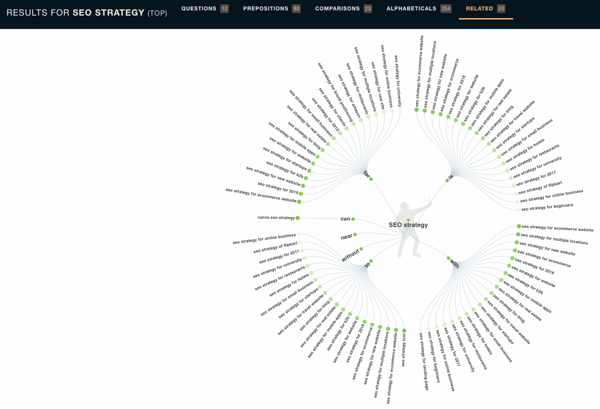
This visually-driven research tool takes a slightly different approach to SEO by showing specific questions people are asking on Google and Bing. It’s helpful for keyword research, and specifically for uncovering those valuable long-tail keyword phrases. The premise is that users enter their queries in the form of questions, rather than short keyword phrases — an idea that jibes especially well with voice-assisted search.
Answer the Public is also a super-valuable tool for discovering Featured Snippet opportunities, to help you attain the coveted SERP position zero. Answers are displayed in visual categories structured around question words — what, where, why, etc. — in a simple format. Just enter your main keyword and popular user questions burst forth like a veritable starburst of inspiration.
5. HubSpot’s SEO Tool
Free with HubSpot Marketing Hub
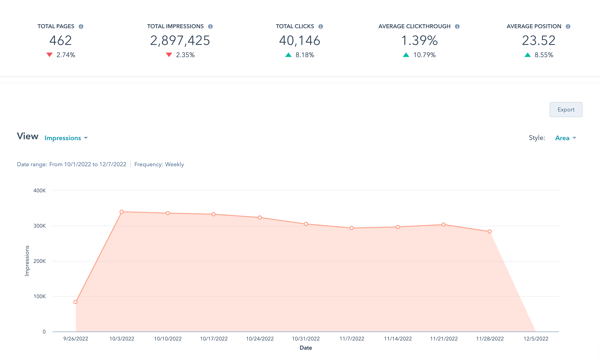
If you’re a HubSpot user, you already have one of the best SEO tools at your fingertips. As the pioneer and global leader in inbound marketing, the HubSpot platform provides several robust functionalities that help users explore and determine what to write about, and then organize and track the ROI of your inbound marketing efforts.
The HubSpot content strategy tool’s Google Search Console integration allows you to analyze specific pages and blog posts for traffic and performance using the metrics that you care about with just a few simple clicks. You can see all the pages Google Search Console detects, along with each page’s performance metrics.
RELATED: Why Go HubSpot? It’s the Best CRM & CMS for B2B Inbound Marketing
6. Keyword Finder
Free — Limited without a paid account
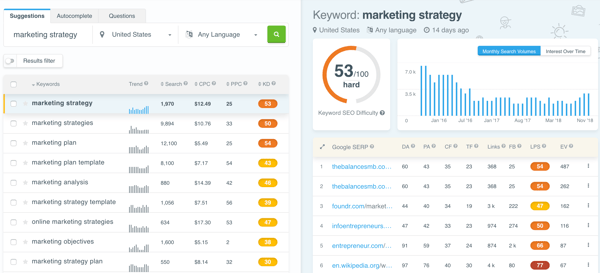
For some tasks, the simplest tool is the best. Keyword Finder doesn’t boast a bunch of bells and whistles, and it sticks to its core focus: keywords. That makes it an easy-to-use research tool that can help you find long-tail keywords and fresh keyword ideas.
One particularly helpful feature is its variant keyword exploration tool. Here’s an example: sometimes it’s hard to decide when to use the singular “strategy” versus the plural, “strategies,” in an H1 headline. Keyword Finder can help you figure it out fast. Distinguishing which keyword variations to spend energy on is critical when identifying their SEO potential and refining your on page content strategy… and everyone wants to save time and effort, right?
7. SEOquake
Free Chrome extension
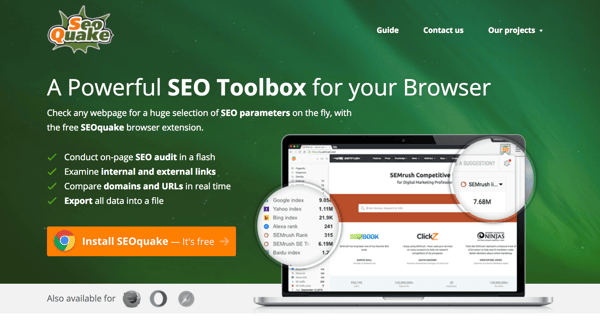
This Chrome extension is a quick SEO checker that performs an instant on-page audit for SEO metrics on any site. Its Link Examiner helps you assess both internal and external links, including URLs, anchor text and link types. It can pull data from multiple sources, including Semrush, Alexa, Google rank, social media, and more — and export it into useful reports.
It also has keyword research tools, and its filters enable you to narrow your search focus.
8. SEO Minion
Free Chrome extension

This SEO browser add-on helps you analyze on-page SEO issues for existing web pages including meta tags, headings, open graphs, and more. You can check for any URL redirects, find broken links, and preview your website on Google’s SERP for any chosen keywords, to help improve click-through rates. One of its features helps you simulate multi-location SERPs and check Google rankings for your website across multiple geographical locations — especially valuable for businesses optimizing for local search.
After you add the extension to your browser, you can play around with the tool to configure advanced settings to personalize to your user preferences.
The Right Toolset Makes SEO Tasks More Manageable
Even as Google and other search engines continue to adjust and update algorithms, and as customers’ online behaviors continue to change and evolve, you can continue to optimize and improve your inbound marketing effectiveness with the right tools.
Precisely targeted and developed content demonstrates an awareness of your customers and their needs that combines the technical side of SEO with your unique, in-depth understanding of the challenges they face. Get clarity on how it all comes together in our free, on-demand webinar, Demystifying Search Engine Optimization. Click to access this info-packed presentation now, and start putting your new knowledge to work right away!
Subscribe To Our Blog
Information. Insights. Ideas. Get notified every time a new Weidert Group blog article is published – subscribe now!
You May Also Like...
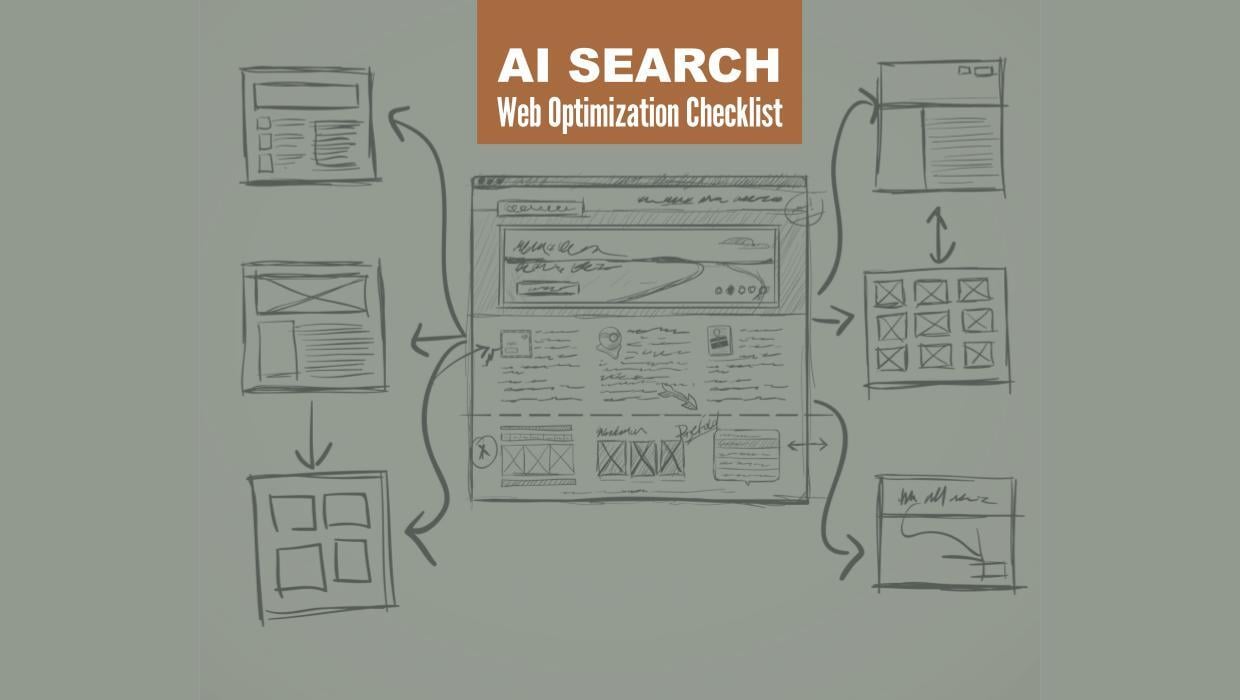
Search Engine Optimization
Optimize Your Industrial Website for AI Search

Marketing Technology
Why Unified Data Efforts Fail (and How Manufacturers Can Fix It)

Search Engine Optimization
How Falcon Rebuilt Industrial AI Search Visibility in 2025
Accelerate Your Growth with
Weidert Group
If you’re ready to explore a partnership, request a personalized consultation with our team.

